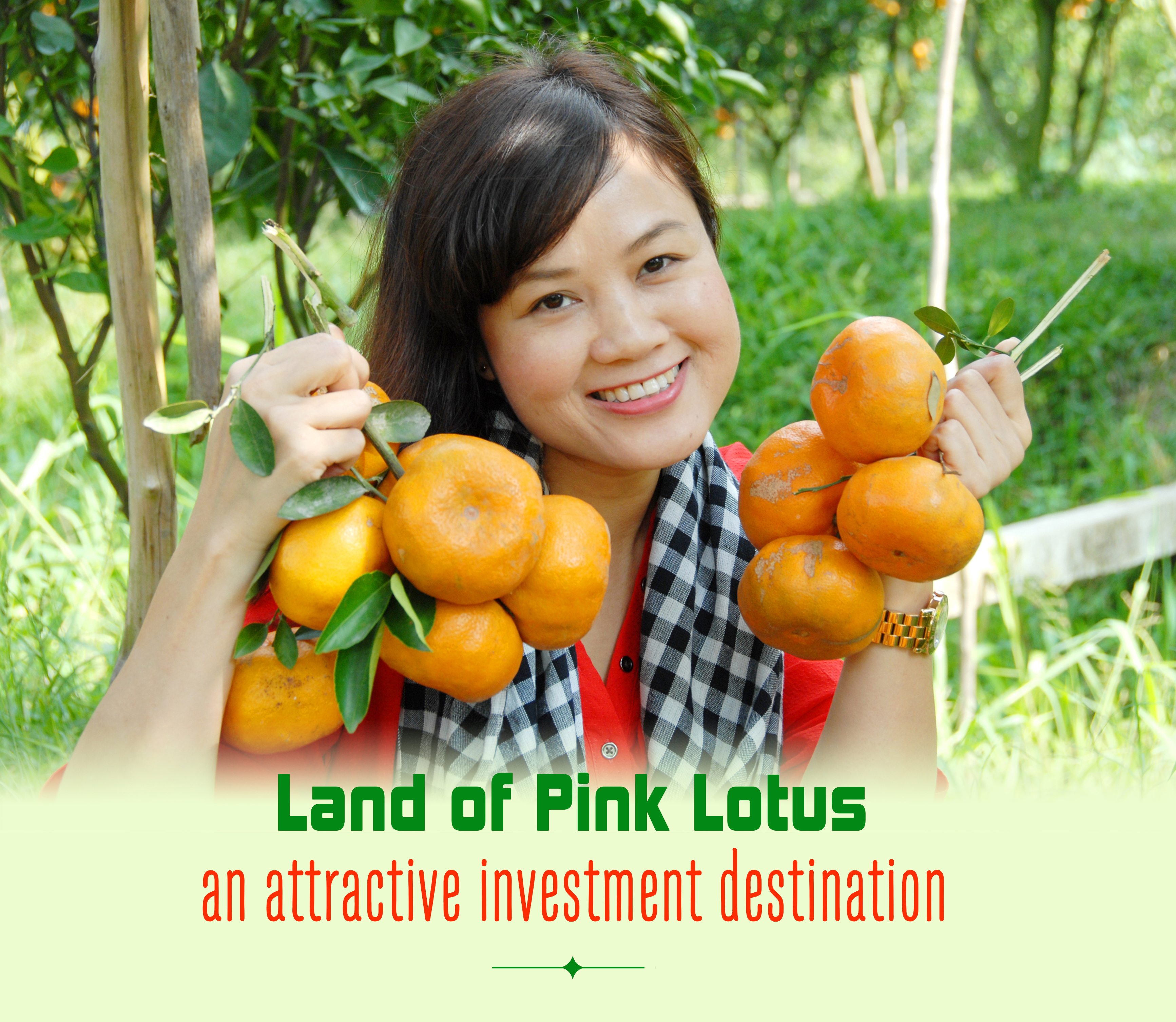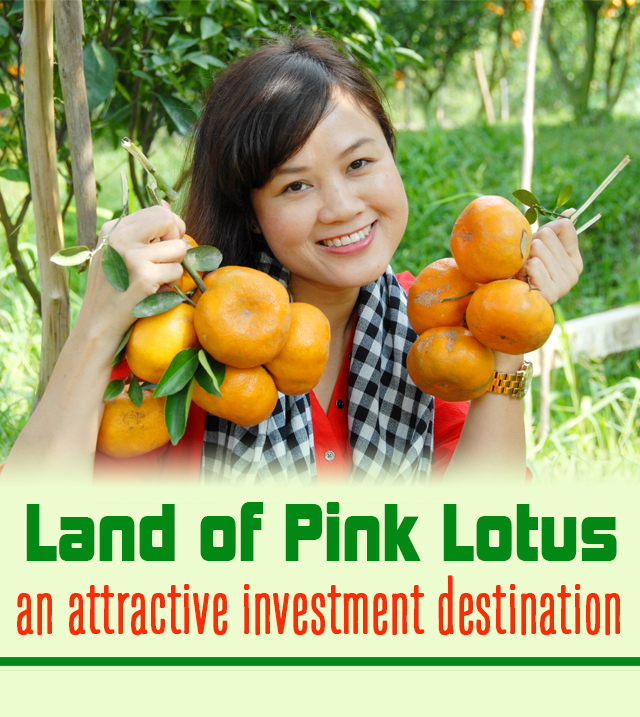Even though it is only more than 100km away from Ho Chi Minh City as the crow flies, Dong Thap, the Land of Pink Lotus, has not developed commensurately with its potential for many years because the transportation infrastructure has not developed synchronously. However, recently, the Cao Lanh-An Huu expressway route has been commenced and is expected to be completed in 2027. This route put into use will remove bottlenecks in transportation infrastructure, and the Land of Pink Lotus will be more attractive in the eyes of investors.

According to Chairman of Dong Thap Provincial People's Committee Pham Thien Nghia, currently, in order to travel from Cao Lanh City to Ho Chi Minh City and other provinces, it is mandatory to move along National Highway 30 to the My Thuan-Trung Luong-Ho Chi Minh City expressway. However, this route is very narrow and does not meet traffic volume. Therefore, although the locality’s investment environment is highly appreciated by businesses, attracting investment to the locality in recent years has been very limited.
"When the project of the Cao Lanh-An Huu expressway connecting with the My Thuan-Ho Chi Minh City expressway is completed and put into use, it only takes more than 2 hours by car from the center of Dong Thap province to Ho Chi Minh City. This is a prerequisite for Dong Thap to attract investors from the country's largest economic center, Ho Chi Minh City, and other provinces to do business and live in the locality," expected Mr. Nghia.
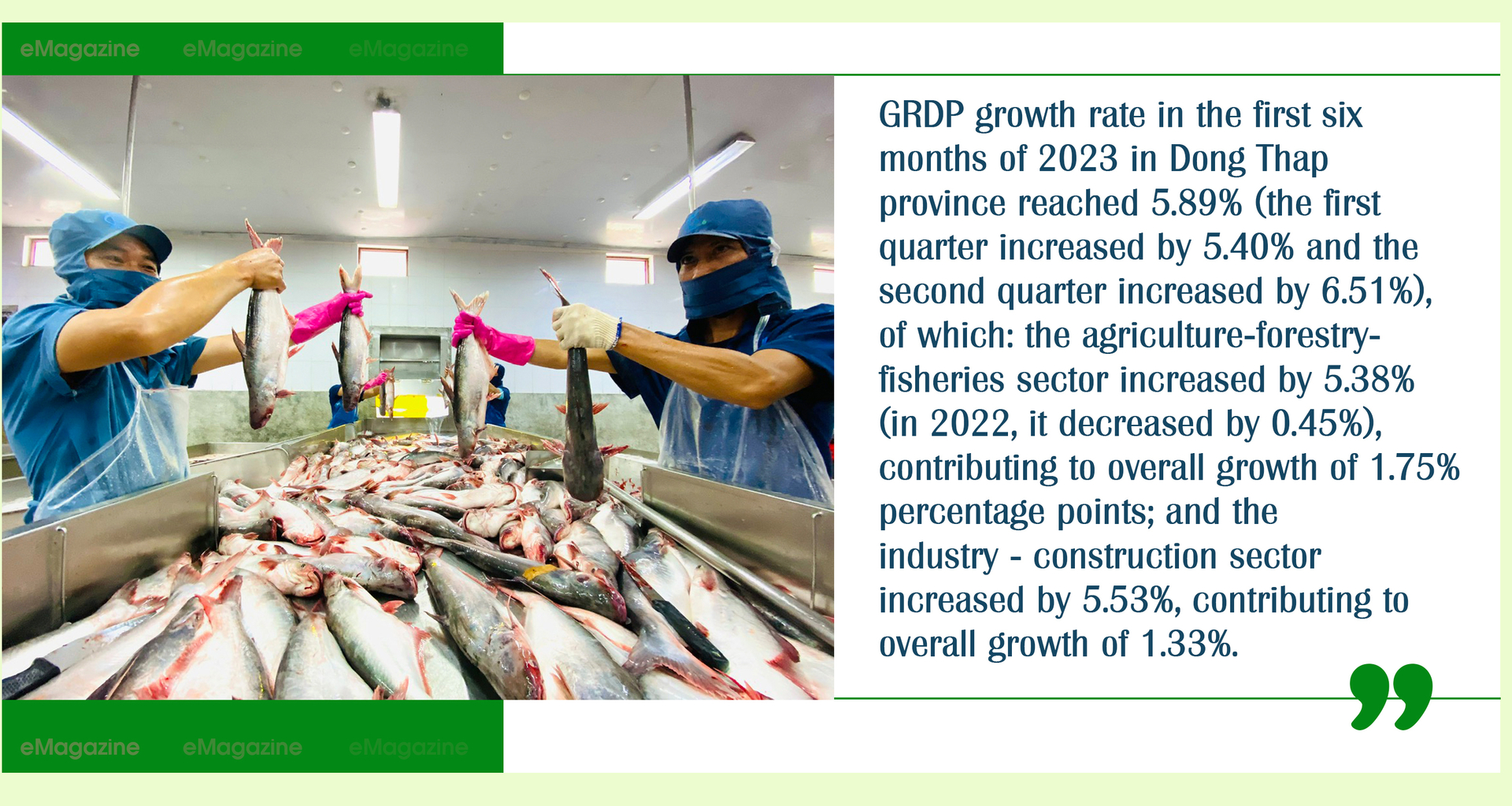
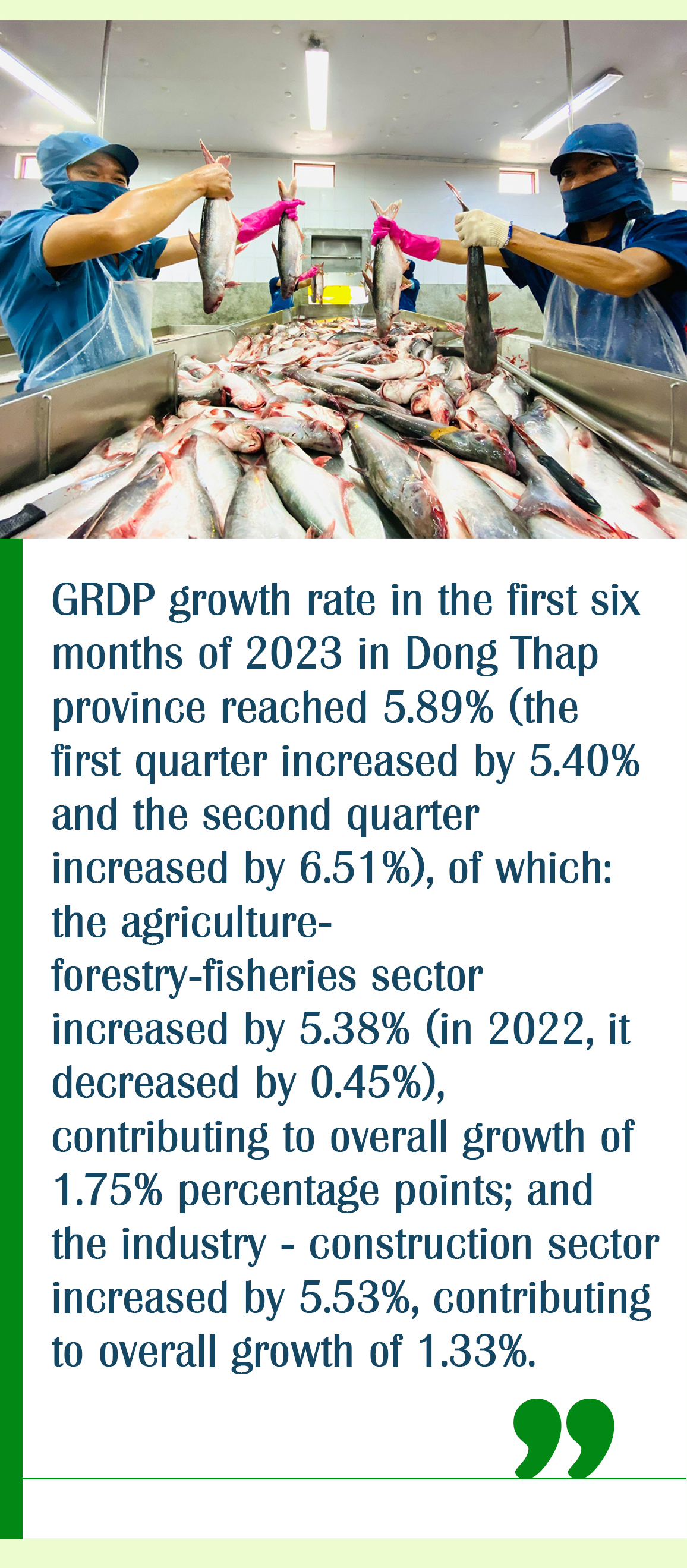
"When there are new roads, the agricultural products of farmers in Dong Thap and Southwestern provinces will go further, be sold at better prices, and bring a higher income to farmers. Thereby, people in the Southwest region will have more conditions to develop and have a better life," Mr. Nguyen Van Vu, a farmer in My Hoi commune, Cao Lanh district, Dong Thap province, expressed his joy.
Previously, thanks to the Central and local capital sources and ODA capital, National Highways N2, 54, 80, 30, Cao Lanh Bridge, etc. passing through Dong Thap province were also invested and upgraded, contributing to significantly improving the locality’s transportation infrastructure.
With its geographical location between the two largest rivers in the Mekong Delta, the Tien and Hau rivers, Dong Thap also has advantages in water transportation.
From a "hidden" locality, Dong Thap has become a locality with advantages, connecting three major centers: Ho Chi Minh City, Can Tho City, and Phnom Penh City (Cambodia).
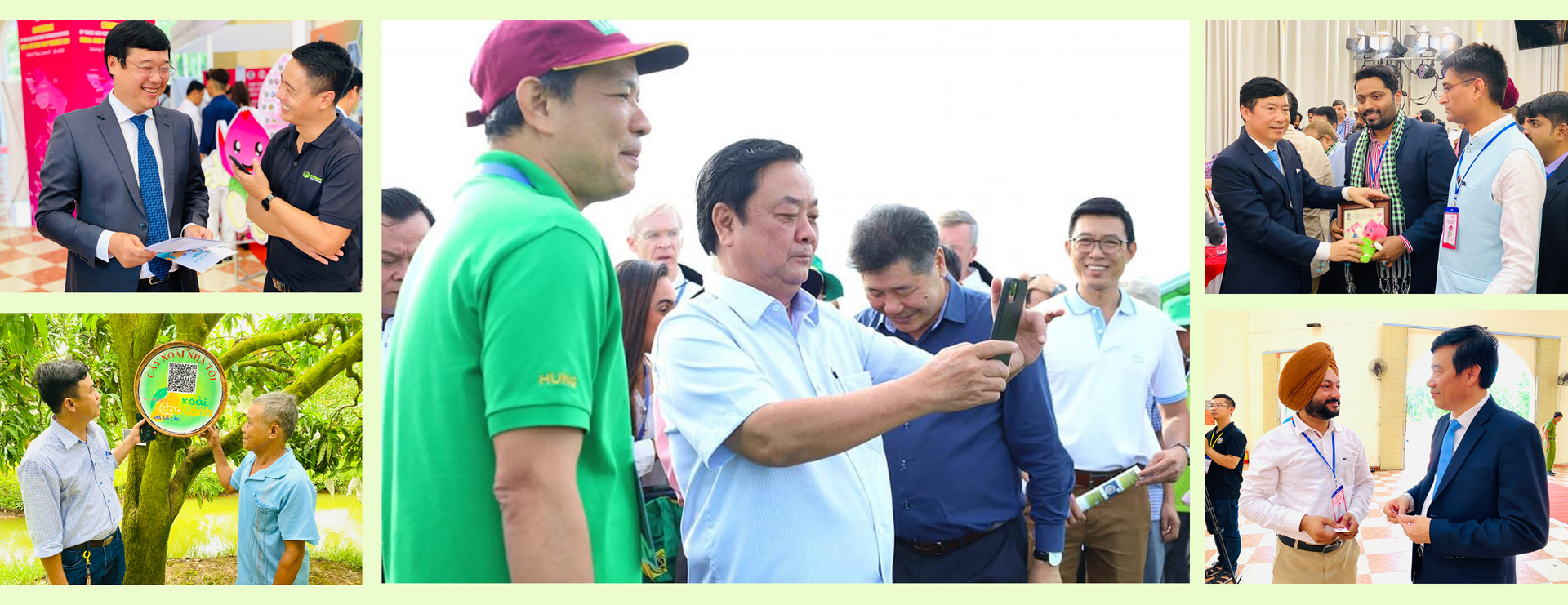

Dong Thap province is located downstream of the Mekong River and has a natural area of 3,383 km2, of which production land accounts for 277,000 hectares. The province has a population of 1.6 million people.
Dong Thap is located between the Tien and Hau rivers and deposited with alluvium from two major rivers of the Mekong Delta, so it has fertile land and many advantages in agricultural development. With a cultivated area of approximately 500,000 hectares and a paddy output of 3.2 million tons, Dong Thap is the locality with the third largest rice output in the country, only after An Giang and Kien Giang. In 2022, rice exports brought over USD 200 million to the locality.
With a farming area of over 2,400 hectares and pangasius output for processing of 500,000 tons/year, Dong Thap is the leading locality in the region in terms of this commodity’s output. In 2022, pangasius exports brought nearly USD 900 million to the locality.
Besides, Dong Thap province also has areas growing many famous fruits such as mango, orange, tangerine, and lotus, which are abundant sources of raw materials for the processing industry.

In addition, Dong Thap province is also known as the "flower capital", with an annual flower-growing area of nearly 3,000 hectares, 3,000 flower varieties, and a total output of over 12 million tons. Dong Thap's flowers are not only consumed domestically but also exported to countries in the region.
Sa Dec City (Dong Thap) is the largest ornamental flower production center in the Mekong Delta. Mr. Nguyen Van Hon, Chairman of the Sa Dec City People's Committee, said: The city's current ornamental flower growing area reaches more than 900 hectares; ornamental flower products are mainly supplied to the domestic market and exported to Cambodia, Taiwan, China, South Korea, etc.
Additionally, Sa Dec also improves the quality of ornamental flower products and mobilizes qualified households to participate in developing more community tourism models. Currently, there are four households implementing the homestay model and operating stably.
Sa Dec is encouraging business establishments to invest in facilities and form entertainment sites and services combined with tourist attractions in the area that operate effectively, such as Flower & Frog Homestay, Phong-LeVent Homestay, Flower Observatory, Hai Cao ornamental flower garden, Powder Village, Rose Field, Happy Land Hung Thy entertainment area, etc., which have attracted a large number of tourists. Since 2016, Sa Dec has attracted over 4 million tourists, including over 270,000 international ones.
The city's per capita income reached more than VND 41 million/person/year in 2017 and over VND 51 million/person/year in 2019, and it was estimated to reach nearly VND 65 million/person/year by 2022.
Sa Dec focuses on building and developing agriculture step by step in the direction of developing urban, modern, and sustainable agriculture with strengths in developing ornamental flowers, aquaculture, and safe vegetable production.
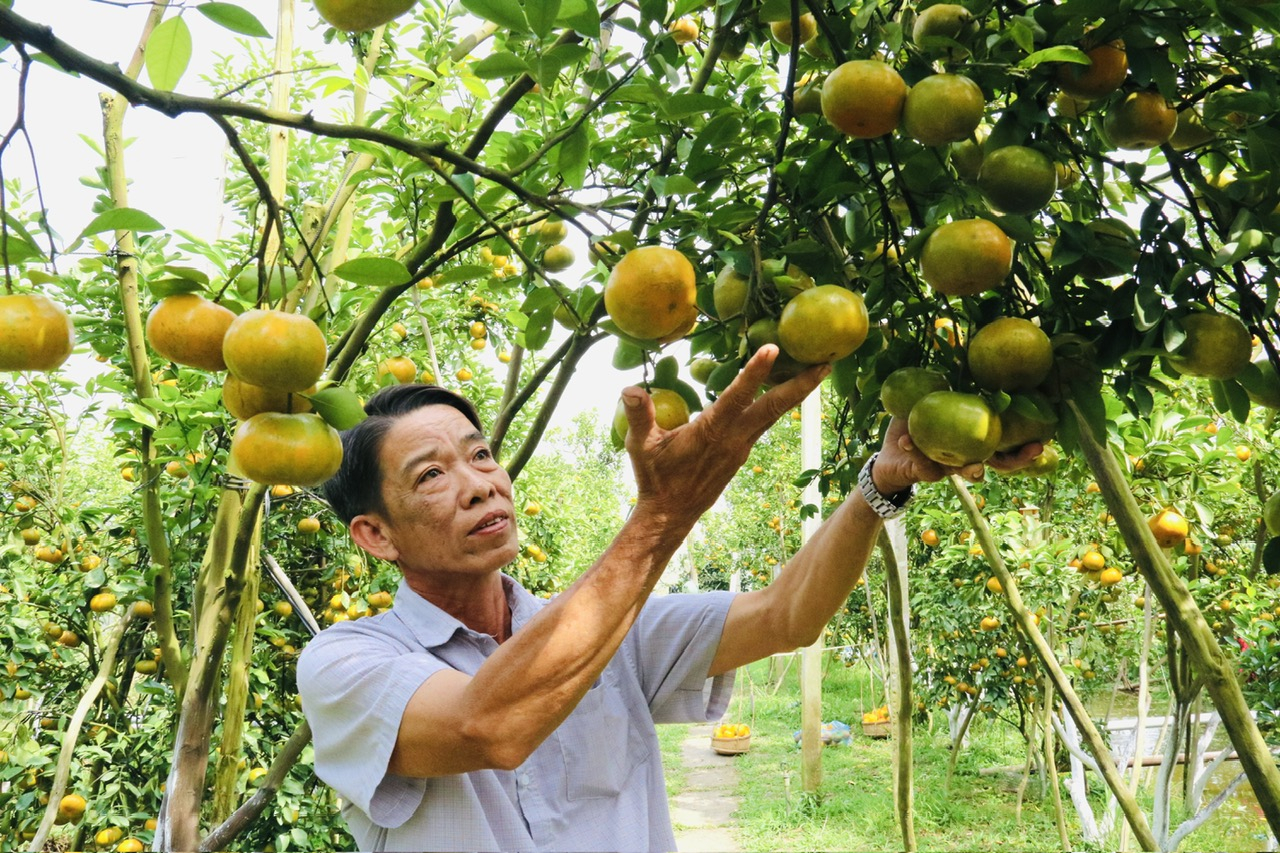
Thereby, the city planned to build Sa Dec Ornamental Flower Village to become the largest concentrated flower production area in the Mekong Delta, combined with developing tourism services associated with flower production areas. At the same time, encourage and mobilize people to change crop structure, expand area, apply science and technology to transplanting and cross-breeding many new flower varieties, and deploy many new technology models in ornamental flower production towards environmental protection.
Sa Dec City is focusing on planning the space and landscape of flower villages; building an ornamental flower service center; linking internal and external regions; building a model of tourism associated with the activities of Sa Dec Tourism Culture Village; diversifying tourism products associated with the locality’s agriculture and cultural values; and organizing flower festivals and death anniversaries of the ornamental flower village's ancestors.
Training human resources, building management system software, guiding, promoting, building a code of conduct and a brand identity for Sa Dec Tourism Culture Village, and displaying OCOP products at stops.
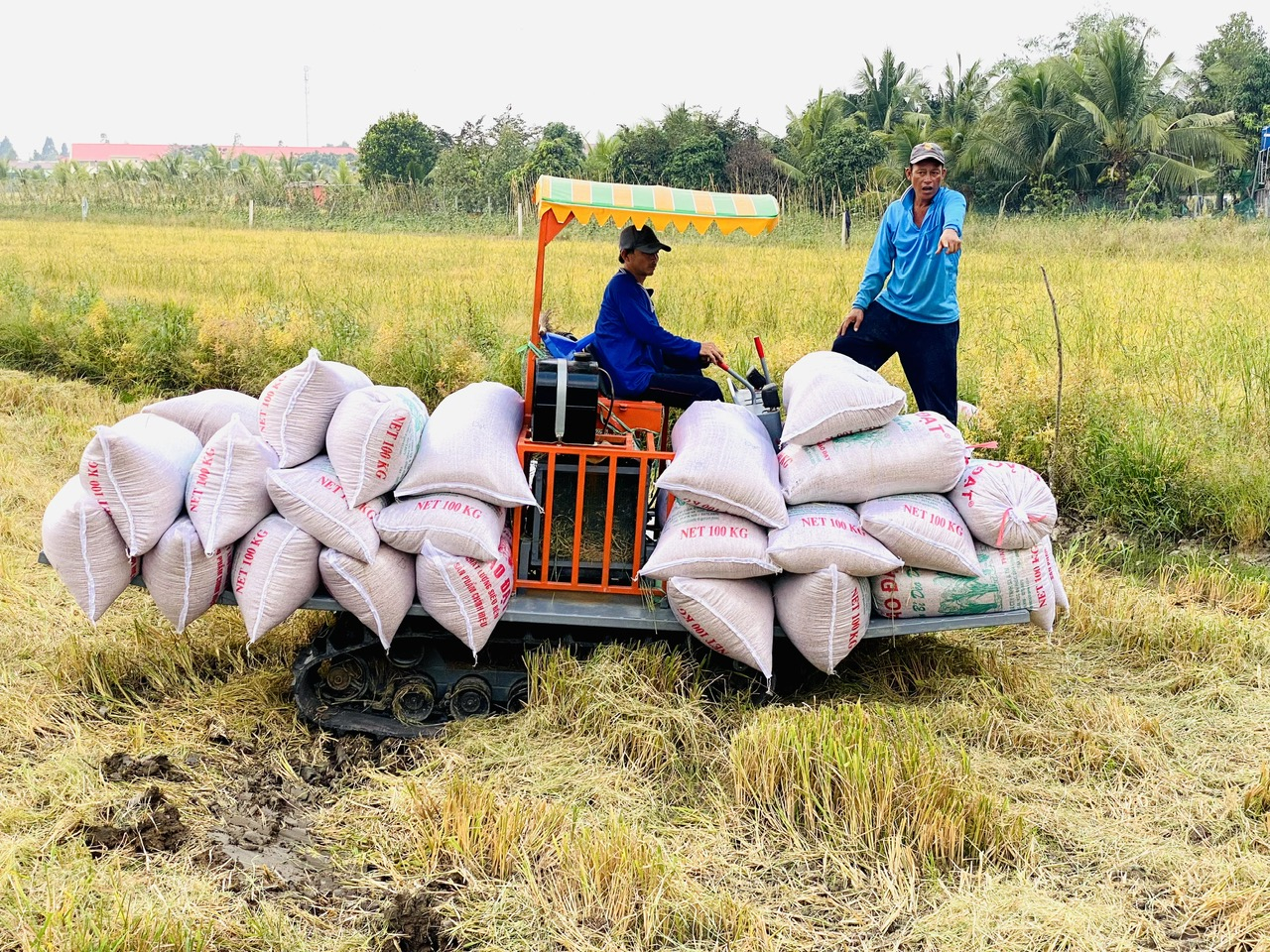
For many years, Dong Thap has been a leading province in implementing local agricultural restructuring very effectively. Five key industries chose to restructure, such as rice, pangasius, ornamental flower, mango, and lotus, have been reorganized in accordance with the orientation of developing concentrated production areas to connect the value chain and linking production infrastructure with high-tech applications. Many products from key industries have been recognized as 3, 4, or 5-star OCOP products.
Besides, Dong Thap also launched the replication of advanced agricultural production models according to the procedures of high-tech applications, organic agriculture, safe production, adaptation to climate change, digital transformation in agriculture, and e-commerce application to commodity transactions, etc. Dong Thap is also the first locality in the country selected by the Central as an experimental place to develop and implement the "Agricultural Restructure Project".

Dong Thap defines sending workers to work abroad as "Work for hire - Return to be your own boss," and this motto is thoroughly grasped throughout the political system. The Dong Thap Provincial People's Committee issued a plan to implement the Youth Development Program in Dong Thap province for the 2021–2025 period and strive to have at least 20,000–30,000 young workers or more have their jobs created each year.
In particular, in 2023, the province strives to send at least 1,500 workers to work abroad under contracts. 100% of communes, wards, and towns in the province have workers working abroad under contracts. This target was recently issued by the Dong Thap Provincial People's Committee in the plan to implement the work of creating jobs and sending workers to work abroad under contracts in 2023.
According to Mr. Nguyen Van Vu, Deputy Director of Dong Thap Employment Service Center, in the 2014–2022 period, the whole province has sent more than 13,000 workers to work abroad for a limited time under contracts, mainly in Japan, South Korea, and Taiwan. It is estimated that throughout Dong Thap province, the average income that workers working abroad sent back to their families each year reached about VND 1,500 billion.
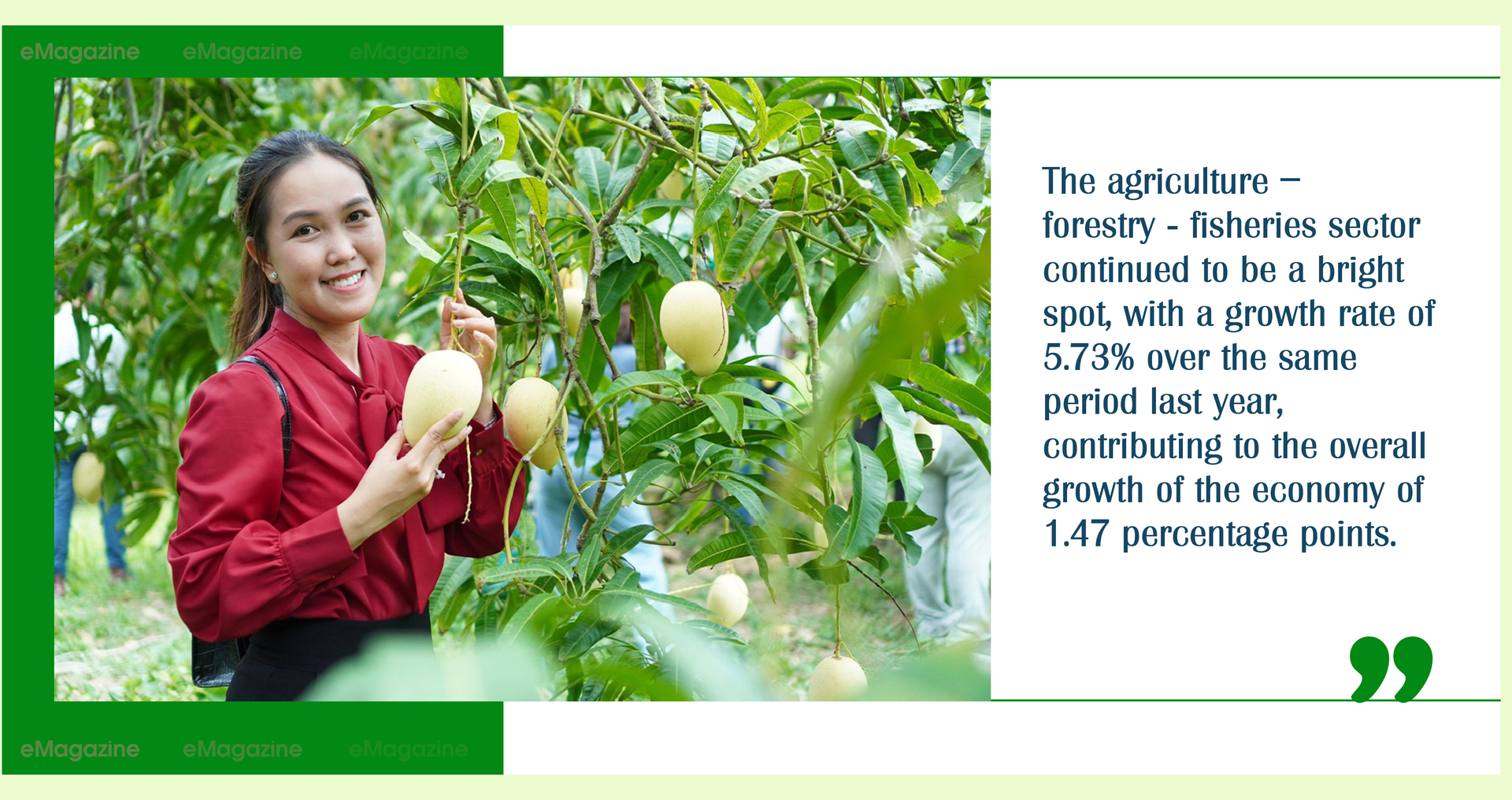

Since the beginning of 2023 alone, there have been hundreds of workers working abroad. Most of the workers whose three-year contracts expired returned home on time, paid off their loans, and saved a large amount of money—VND 600 million or more. This helps their families become quite rich and confidently participate in local startups. Labor exports not only help many families escape poverty sustainably and help median families become better off, but they also change the face of the province's rural area.
Since the beginning of 2023, workers in Dong Thap have continued to have more opportunities to work in the agricultural sector in Korea. Dong Thap workers who work in South Korea enjoy preferential policies according to the contents of the cooperation agreement signed between Dong Thap province and districts of South Korea. Preferential policies include learning foreign languages, orientation, and procedures before exiting the country.
Dong Thap sets export goals for the coming time, in which the province strives to have 100% of pupils and students in educational institutions and vocational education institutions receive vocational education and startup knowledge and skills before graduation. 100% of students at colleges and universities in the province are equipped with knowledge about international integration and digital transformation. At least 20,000 young people are given jobs, and at least 90% of young people working abroad will continue to receive vocational training, employment exchange, and support in establishing and starting a business after returning home.
Recently, the Dong Thap Provincial People's Committee signed a memorandum of cooperation with Yeoncheon district, Gyeonggi-do province (South Korea). The two sides will jointly promote exchange activities based on mutual respect and benefits in fields of common interest, such as sending workers from Dong Thap province to work in Yeoncheon district; coordinating to implement study and internship programs at South Korean businesses; cooperating in the field of agriculture; and exchanging culture and sports through the establishment of friendly exchange and cooperation relations.


With the pioneering initiative to implement the "entrepreneurial coffee" model, Dong Thap province has created a deep impression on the business community.
Over the course of its operation, this model has greatly contributed to solving problems for businesses and is highly appreciated by the business community. Since then, this model has been replicated in many other localities.
According to Chairman of Dong Thap Provincial People's Committee Pham Thien Nghia, the beauty of the "entrepreneurial coffee" model is that it has created an "open" and close space, giving entrepreneurs the feeling of considering leaders of government agencies as friends and willing to express their thoughts.
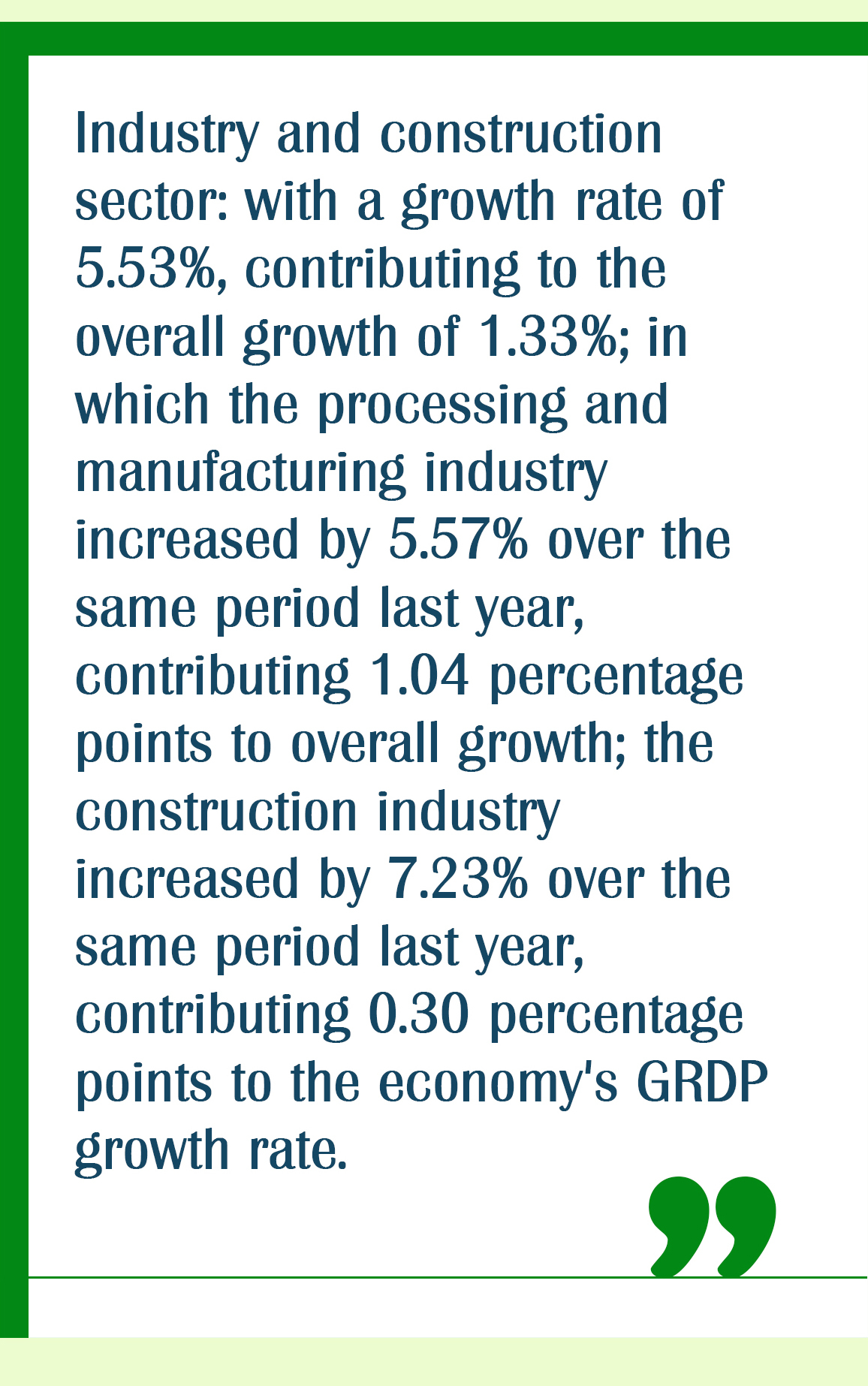
In the opposite direction, the "entrepreneurial coffee" model has helped civil servants better understand the difficulties of businesses and change their thinking from government managing to government serving the people and business community.
"To make this model more widespread, we are expanding the "entrepreneurial coffee" model to districts, towns, industrial parks and clusters.
With the spirit of accompanying businesses and considering the success of businesses as the locality’s success, the investment and business environment in Dong Thap province have always been "highly scored" by the business community for many years. For the past 15 consecutive years, Dong Thap has always ranked in the top 5 in the country in terms of the provincial competitiveness index (PCI)", the Head of the Dong Thap Provincial Government shared.
According to the Dong Thap Provincial People's Committee, in 2022, the province's PCI reached 69.68 points, ranking 5th in the country and continuing to lead the Mekong Delta region.
In 2023, Dong Thap province sets a target of striving to improve the PCI index to 72 points or more and maintain the top 5 provinces and cities with the best quality of economic management in the country.

The most notable event in investment promotion in Dong Thap province occurred at the end of June. It is the first time that this locality has welcomed 150 Indian businesses to explore investment opportunities. Of which, there are over 100 businesses in food and seafood trade and processing, which are fields in which Dong Thap province has strengths.
Speaking at the trade connection event between businesses of the two countries, Mr. Madan Mohan Sethi, Consul General of India in Ho Chi Minh City, said: "This is a big event of great importance to Dong Thap province and the Consulate General of India in Ho Chi Minh City. Through this event, businesses from both sides will have the opportunity to meet, exchange, and understand each other better to enter into trade and investment cooperation with the goal of mutual benefit."
Previously, Something Group (Japan) had a working session with leaders of Dong Thap province with the wish to cooperate with Dong Thap province to invest in IOT applications in the agricultural sector and cement deep mixing technology in the construction sector.
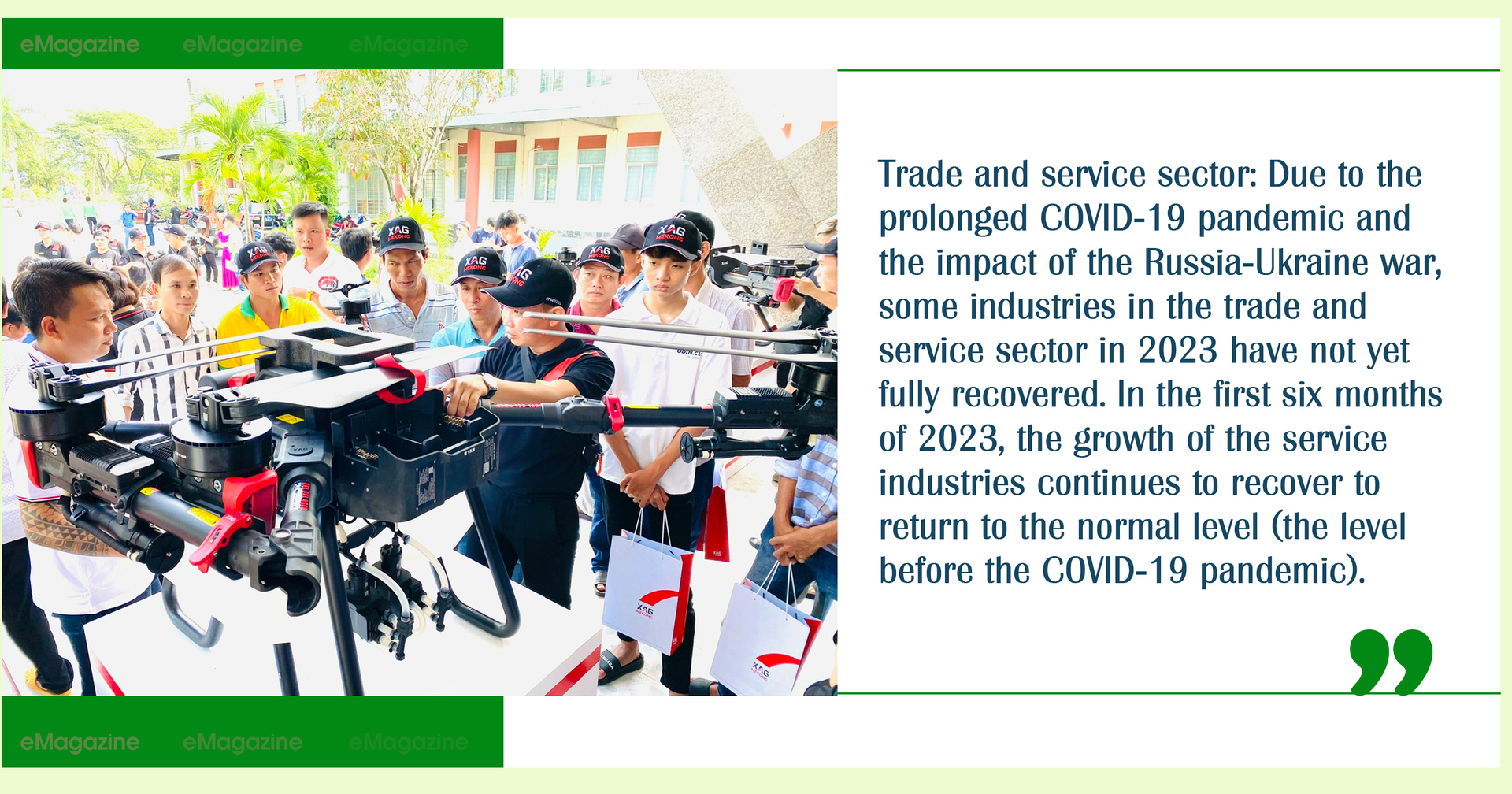
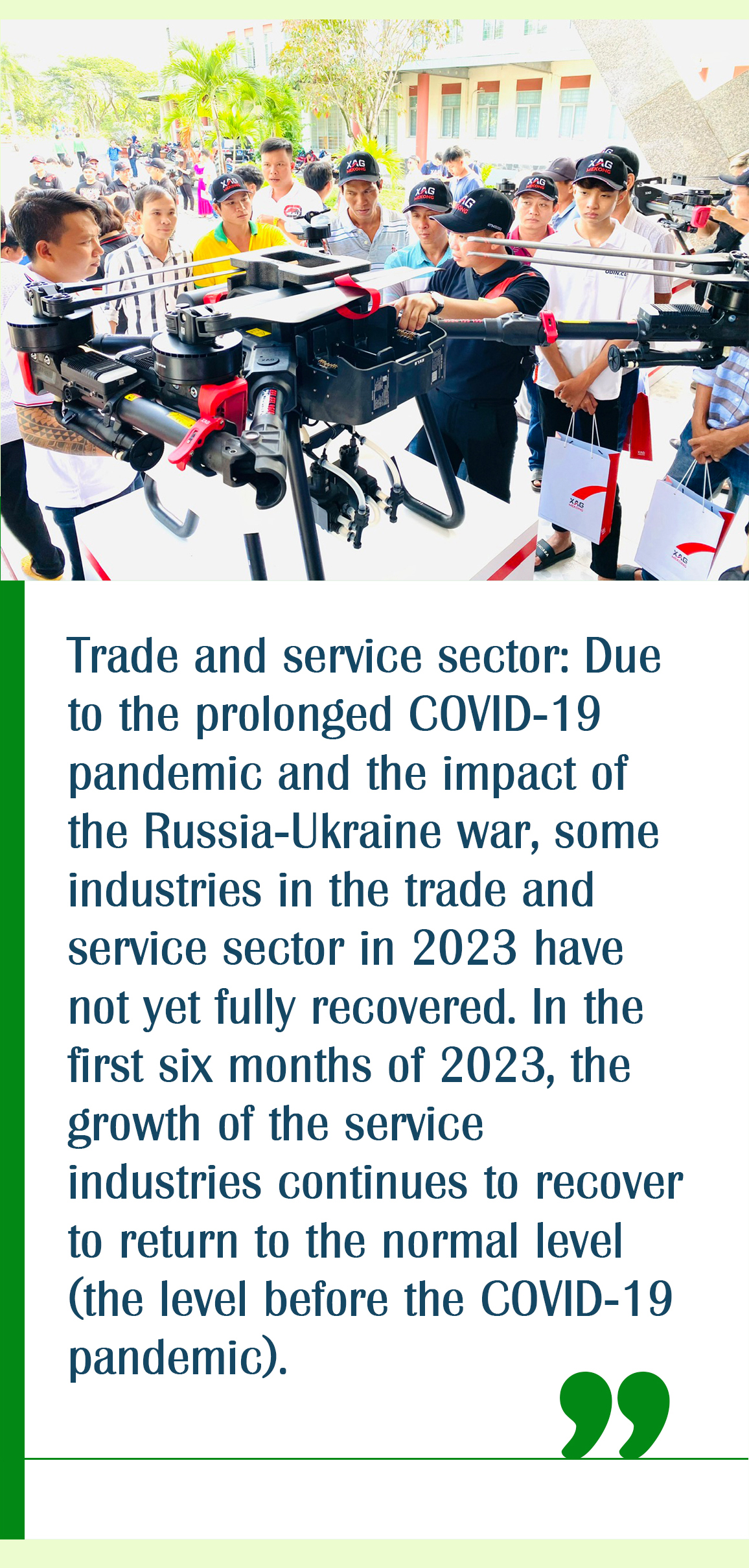
T&T Group JSC, Tai Tam Group JSC, Hung Thinh Group JSC, Phat Dat Industrial Park Investment and Development JSC, Masterise Group, Everland Group, Ha Long Canned Food JSC, etc. also came to explore investment opportunities in the fields of commerce, real estate, and tourism in Dong Thap province.
Notably, at the end of 2021, Nova Group JSC also signed a memorandum of investment in a series of large-scale projects in Dong Thap.
Mr. Truong Hoa Chau, Director of the Dong Thap Department of Planning and Investment, said that in addition to the above-mentioned investors, in recent times, the locality has also welcomed many other large companies and corporations to explore investment opportunities in the locality.
According to Mr. Chau, Dong Thap province currently has a master plan for four industrial parks with an area of 550 hectares. Of which, three industrial parks have been put into operation with an occupancy rate of over 88%. An industrial park has clean land and is calling for infrastructure investment, which is Tan Kieu industrial park with an area of 100 hectares. The province now has more than 200 hectares of industrial land ready for investors to rent at current prices ranging from USD 70 to USD 110/m2.
In addition, Dong Thap has implemented a master plan for 34 industrial clusters with a total area of approximately 2,100 hectares, including 12 industrial clusters with an area of nearly 400 hectares, which have been put into operation with an occupancy rate of about 85%. (9/12 clusters are 100% filled).
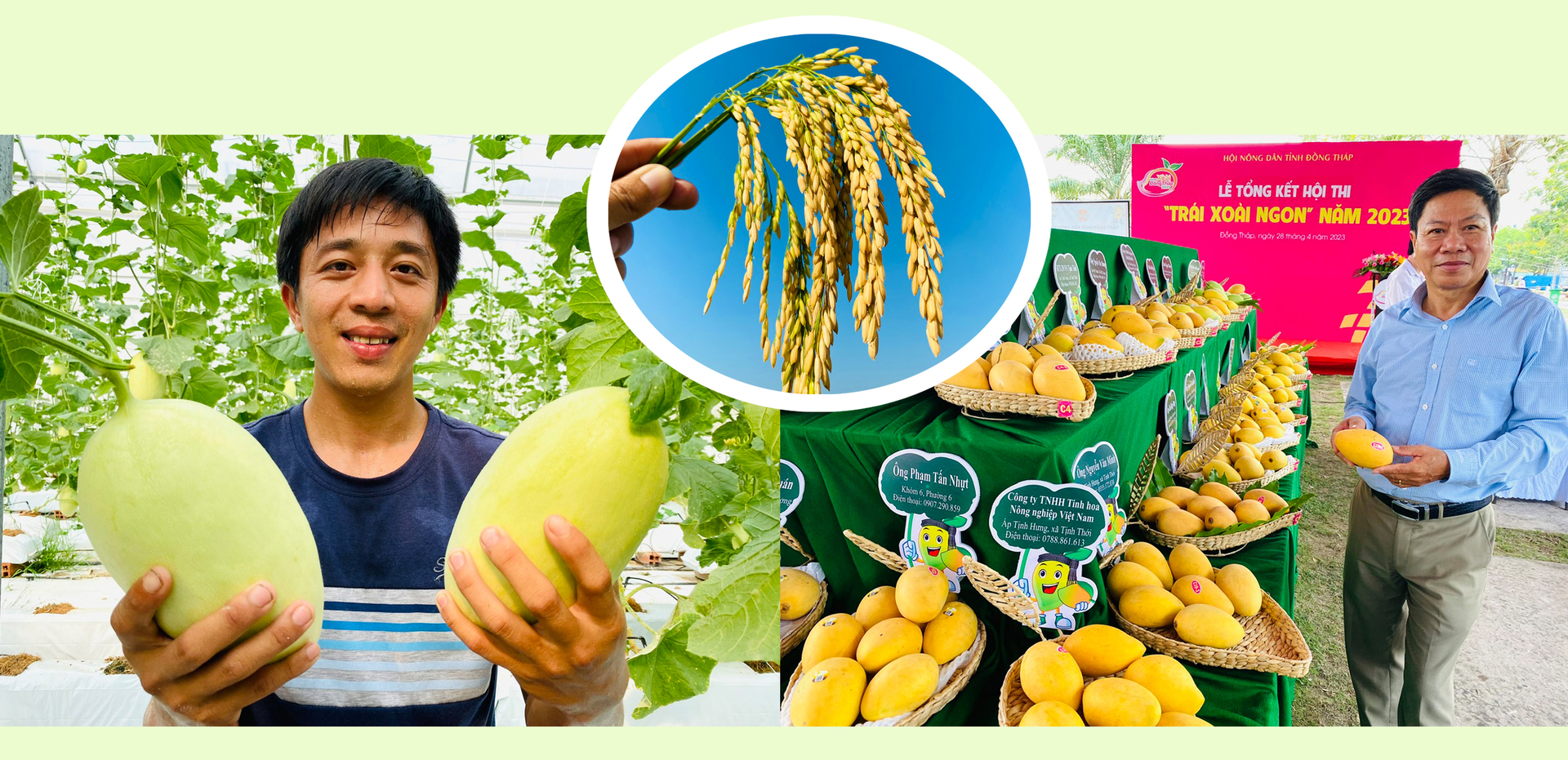
Not only focusing on developing industrial parks and clusters, Dong Thap has been inviting investors to exploit the potential and advantages of the border gate economic zone, which has an area of nearly 32,000 hectares.
With a border more than 50km long with Cambodia, about 200km far from the capital Pnom Penh (Cambodia), Dong Thap has seven border gates. Of which, two international border gates, namely Thuong Phuoc (Hong Ngu district) and Dinh Ba (Tan Hong district), are focusing on investing in infrastructure and calling for investment.
"The province also pays attention to calling for investment in the field of infrastructure for tourism development. With major relics and tourist areas such as Nguyen Sinh Sac Relic Area, Tram Chim National Park, Go Thap Relic Area, Xeo Quyt Tourist Area, Gao Giong Ecotourism Area, Sa Dec Ornamental Flower Village, etc., the locality’s tourism industry has attracted a higher number of tourists in the following year than the previous year. Investment in tourism development, especially agricultural tourism, is a priority sector for local investment encouragement," said Mr. Chau.
According to Chairman of Dong Thap Provincial People's Committee Pham Thien Nghia, with the advantages of geographical location, rich resources, and great potential for developing the border trade economy, the locality is now being invested in by the Government to perfect infrastructure. We set an ambitious goal for Dong Thap to be a leader in many fields. The goal is that by 2025 or 2030 at the latest, Dong Thap will become the center of the Mekong Delta region in many fields.
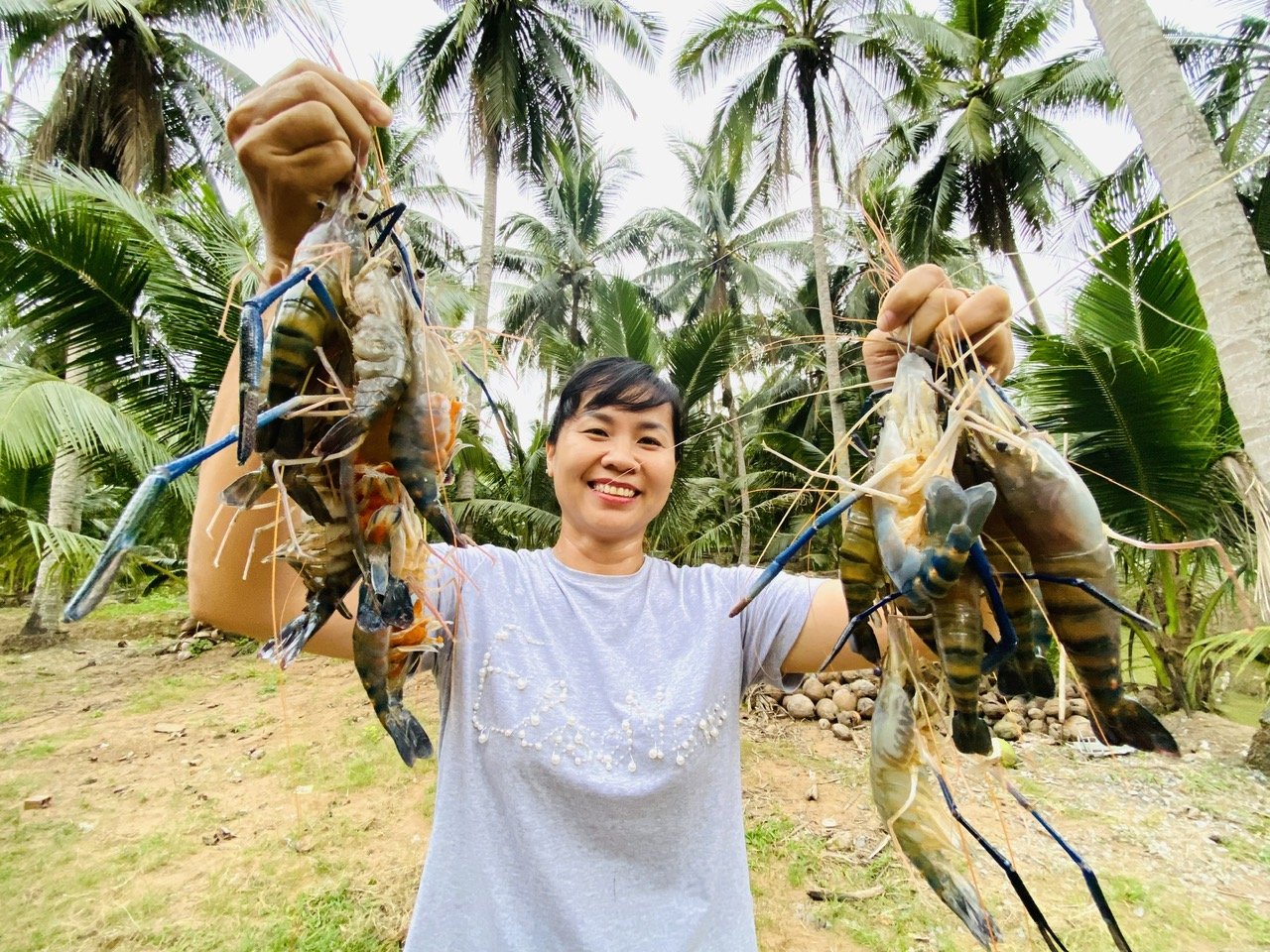
Content: Le Hoang Vu - Minh Thao
Photo: Le Hoang Vu - Minh Thao
Translated by: Huyen Vu Thu
Desight: VAN


